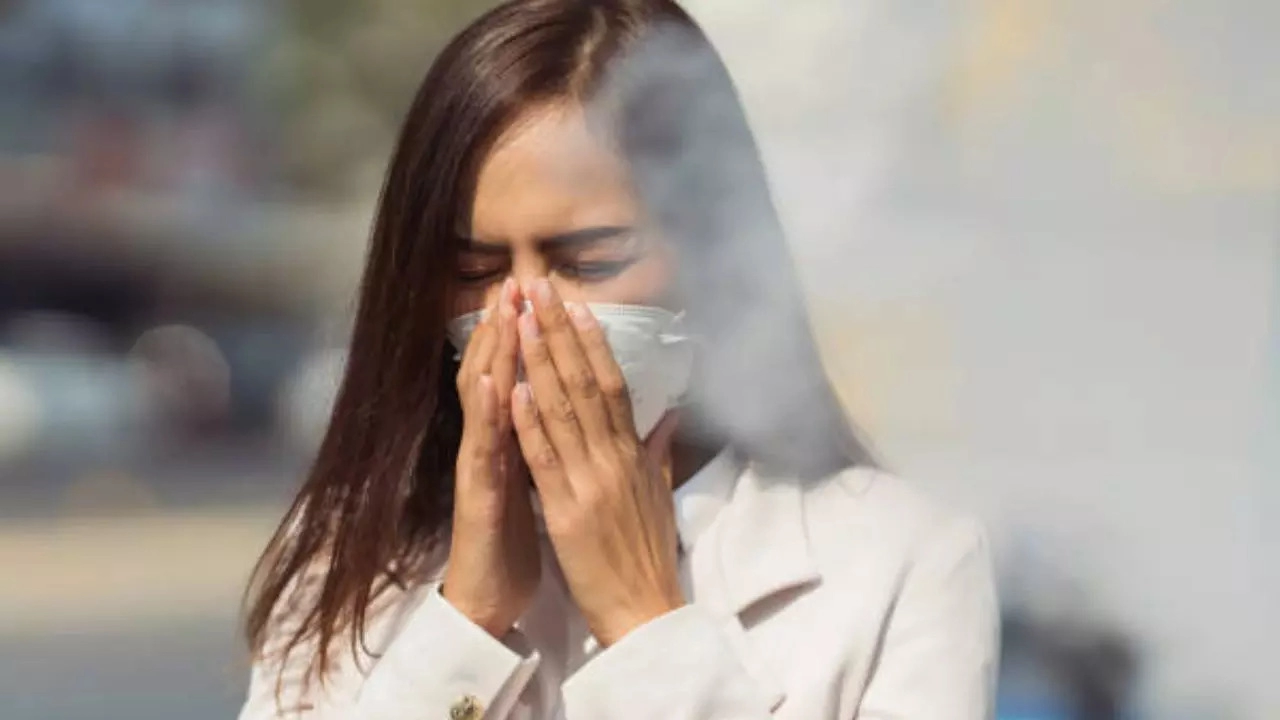
Wrinkles And Skin Damage: How Air Pollution Is Making You Age Faster (Image Credits: iStock)
Delhi's air quality has started deteriorating since Dussehra. The Commission for Air Quality Management (CAQM) has ordered the implementation of stage two of the anti-pollution plan GRAP this morning. According to the real-time data by the System of Air Quality and Weather Forecasting and Research (SAFAR), the AQI in Delhi at 8 am was ‘very poor’ as recorded at 317. An AQI between 0 and 50 is considered good, 51 and 100 satisfactory, 101 and 200 moderate, 201 and 300 poor, 301 and 400 very poor, 401 and 450 severe, and above 450 severe-plus.
According to a forecast by the India Meteorological Department (IMD), Delhi's daily average AQI is expected to remain in the 'very poor' category in the coming days. Stubble burning in neighbouring Haryana and Punjab is one reason for the rise in pollution levels in Delhi, especially during the post-harvest season of October and November.
We are all well aware that air pollution increases the risk of respiratory issues. But did you know that air pollution affects not only lung health but also the skin, making it grow older much earlier than it should? Some of the pollutants that exist in the air include dust, smoke, and other harmful gasses that damage the outer layers of the skin. The range of pollution effects on the skin may lead to dehydration, disruption of the skin microbiome, skin barrier damage, premature ageing, and even skin cancer. It can also cause the worsening of existing skin conditions such as acne, contact dermatitis, eczema, and psoriasis.
We got in touch with Dr Ruben Bhasin Passi, Consultant - Dermatology, CK Birla Hospital Gurugram who explains that air pollution mostly affects collagen and elastin as they are sources of protein, which keeps skin hard and elastic. This results in wrinkles and sagging lines on the body.
“Air pollution carries tiny particles called particulate matter (PM). This would penetrate deep skin layers and cause inflammation, giving dark spots, and a dull look. Exposure over time to air pollution is likely to compromise the natural barrier that the skin possesses, thereby becoming dehydrated and irritated and, thus making visible signs of ageing,” Dr Ruben said.
“Moreover, their destructive impact increases when combined with polluted air and UV rays. This weakens your skin's repair mechanisms, accelerating the ageing process. To protect your skin from pollution, follow these steps: cleanse thoroughly, apply antioxidant products, and use a broad-spectrum sunscreen daily to reduce the harmful effects of pollution. As a result, you’ll enjoy healthier, more youthful-looking skin,” Dr Ruben further added.
Get Latest News Live on Times Now along with Breaking News and Top Headlines from Health and around the world.